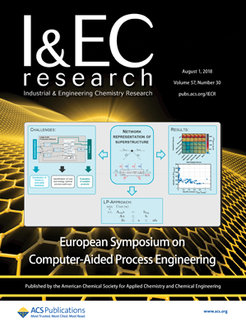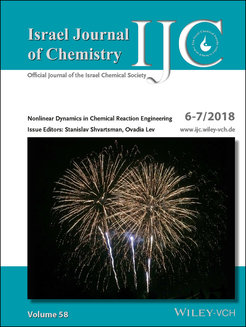Selected Articles
Here, we present selected publications, articles and books, published by scientists of the MPI Magdeburg.
2018
Linear Programming Approach for Structure Optimization of Renewable-to-Chemicals (R2Chem) Production Networks
Highlight on the Cover of Volume 57 (Issue 30) of Industrial & Engineering Chemical Research

For CO2 reduction in the chemical industries, the massive use of renewable energies and the substitution of fossil based feedstock by implementation of Renewables-to-Chemicals (R2Chem) production systems are of key importance. Due to the multitude of alternative feedstock sources and process technologies a large number of different process pathways are possible for converting renewables into valuable target products. In this work we propose a method for the identification of the optimal R2Chem process structure under consideration of an economic objective function. By introducing process extent variables it is possible to fully avoid binary decision variables, resulting in a purely linear program. The derived cost function includes operational as well as capital cost. Furthermore, a penalty term for the carbon dioxide emission is considered. It is shown that an acceptable trade-off between cost and emissions is realizable by using natural gas as feedstock source, especially if the required energy is supplied from renewable sources. A net consumption of CO2 of the overall production system is only possible if renewable energies sources are exploited while using CO2 as feedstock source at the same time. In case of using fossil energy sources, a negative carbon footprint is unavoidable due to high indirect CO2 emissions due to the energy supply (electricity, heat). Thus, in addition to economic challenges of using CO2 as feedstock also the ecologic impact strongly depends on the energy source used. The main advantage of the proposed method is the fast screening for the optimal process system within a superstructure which contains many alternative process configurations. The method is exemplified by optimizing process systems for the production of methanol for different feedstock and energy supply sources.
Nonlinear Frequency Response Method for Evaluating Forced Periodic Operations of Chemical Reactors

Nonlinear Frequency Response (NFR) method is a relatively new method which can be used for fast evaluation of possible process improvements through periodic operations. The method is analytical and approximate. Its main task is to give an answer whether periodic modulation of one or more process inputs can result in improved process performance. The method is explained in brief and an overview of the existing applications is given. The review covers simple reactions performed in isothermal and non‐isothermal stirred tank reactors exposed to different modulated inputs (inlet concentration, flow‐rate, inlet temperature, temperature of the heating/cooling medium). Processes with two simultaneously modulated inputs and different shapes of the periodic input are also considered. The results of the NFR method are compared with the results of numerical simulation and a critical evaluation of the method is given.

